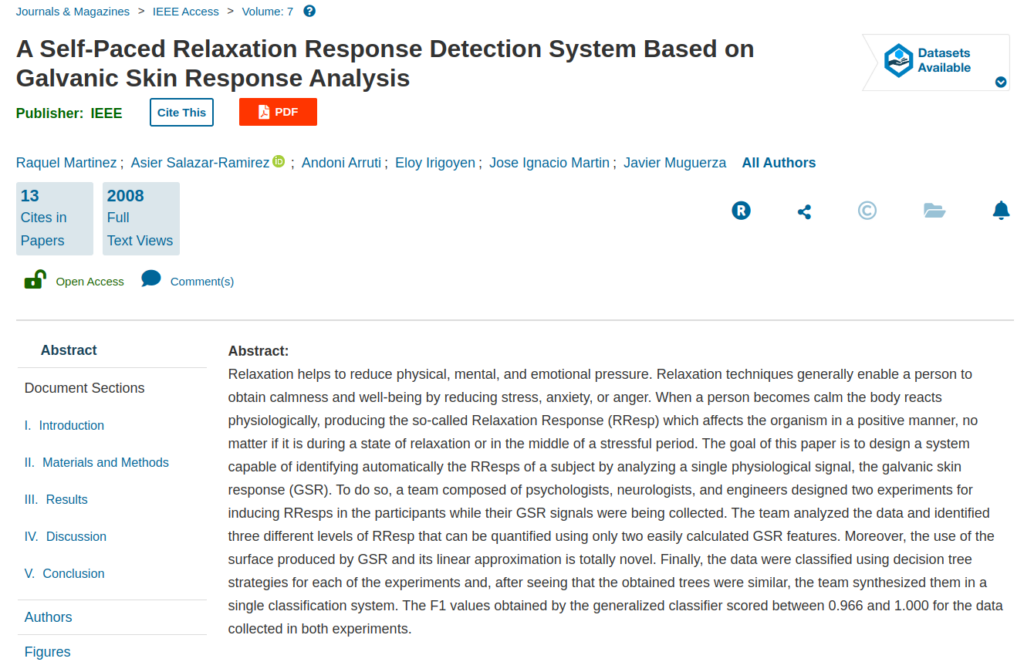Relaxation helps to reduce physical, mental, and emotional pressure. Relaxation techniques generally enable a person to obtain calmness and well-being by reducing stress, anxiety, or anger. When a person becomes calm the body reacts physiologically, producing the so-called Relaxation Response (RResp) which affects the organism in a positive manner, no matter if it is during a state of relaxation or in the middle of a stressful period. The goal of this paper is to design a system capable of identifying automatically the RResps of a subject by analyzing a single physiological signal, the galvanic skin response (GSR). To do so, a team composed of psychologists, neurologists, and engineers designed two experiments for inducing RResps in the participants while their GSR signals were being collected. The team analyzed the data and identified three different levels of RResp that can be quantified using only two easily calculated GSR features. Moreover, the use of the surface produced by GSR and its linear approximation is totally novel. Finally, the data were classified using decision tree strategies for each of the experiments and, after seeing that the obtained trees were similar, the team synthesized them in a single classification system. The F1 values obtained by the generalized classifier scored between 0.966 and 1.000 for the data collected in both experiments.
A Self-Paced Relaxation Response Detection System Based on Galvanic Skin Response Analysis
Publication
IEEE Access
Vol 7, pp. 43730 - 43741
Abstract
Web and Email Links
Related Listings
Journal
Behavior Research and Therapy
In this study, Herbert Benson's (1975) Relaxation Response Meditation program was tested as a possible treatment for Irritable Bowel Syndrome (IBS). Participants were 16 adults who were matched into pairs based on presence of Axis I disorder, primary IBS symptoms and demographic features and randomized to either a six week meditation condition or a six week wait list symptom monitoring condition. Thirteen participants completed treatment and follow-up. All subjects assigned to the Wai […]
Journal
PLOS ONE
Recently, much scientific attention has been focused on resting brain activity and its investigation through such methods as the analysis of functional connectivity during rest (the temporal correlation of brain activities in different regions). However, investigation of the magnitude of brain activity during rest has focused on the relative decrease of brain activity during a task, rather than on the absolute resting brain activity. It is thus necessary to investigate the association […]
Journal
Journal of Traditional and Complementary Medicine
Background and aim Mental stress represents a pivotal factor in cardiovascular diseases. The mechanism by which stress produces its deleterious effects is still under study, but one of the most explored pathways is inflammation-aging and cell senescence. In this scenario, circulating microRNAs appear to be regulatory elements of the telomerase activity and alternative splicing within the nuclear factor kappa-light-chain-enhancer (NF-κB) network. Anti-stress techniques appeared to be […]

